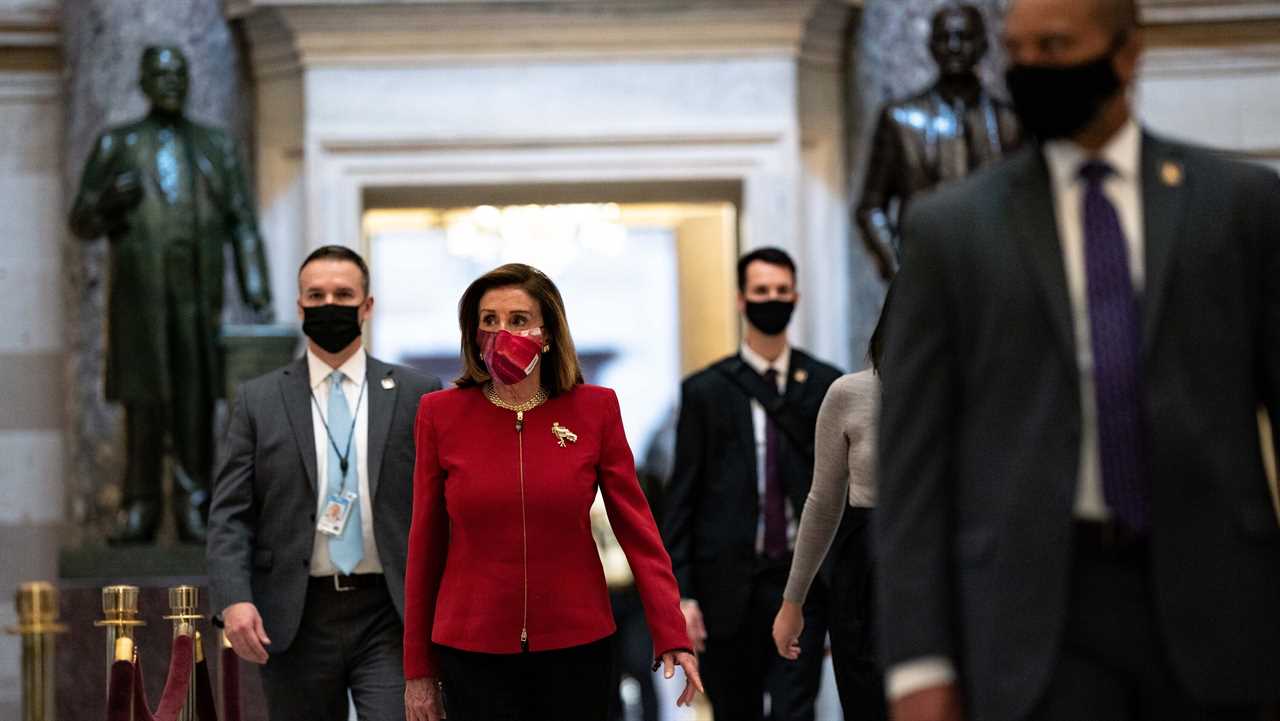
For the second time in just over a year, the House on Monday sent an article of impeachment against Donald J. Trump to the Senate for trial, thrusting his political fate into the hands of 50 Republican senators who for now appear reluctant to convict him.
On a day marked more by ceremony than substance, nine House managers walked across the Capitol to inform the Senate that they were ready to prosecute Mr. Trump for “incitement of insurrection,” a charge approved on a bipartisan basis after the former president stirred up a violent mob that stormed the Capitol earlier this month. But senators planned to quickly hit pause, putting off the heart of the trial until Feb. 9 and buying Republicans time to prepare for a proceeding that will be as much a referendum over the future of their party as it will be on Mr. Trump himself.
Unlike Mr. Trump’s last impeachment, when Republicans quickly and enthusiastically rallied behind him, several Republicans, including Senator Mitch McConnell of Kentucky, the minority leader, have signaled they are open to convicting the former president after a mendacious campaign to overturn his election loss that turned deadly. That would allow the Senate to bar him from ever holding office again. But at least at the trial’s outset, their numbers fell well short of the 17 Republicans that would be needed to join Democrats in securing a conviction.
Instead, with the trial on hold, Republicans’ initial fury about the Jan. 6 attack appeared to be giving way to cold political calculations about the price they might pay for abandoning Mr. Trump, given his continued hold on the voters who comprise the party’s base.
A survey by The New York Times on the eve of the trial found that 27 Republican senators had expressed opposition to charging Mr. Trump or otherwise holding him accountable by impeachment. Sixteen Republicans indicated they were undecided, and seven had no response. Most of those opposed increasingly fell back on process-based objections rather than defending Mr. Trump.
Carrying a slim blue envelope bearing the impeachment charge, the House managers, led by Representative Jamie Raskin of Maryland, walked through a Capitol where memories of the Jan. 6 siege were still fresh. They started in the House chamber, where lawmakers ducked for cover and donned gas masks as rioters tried to force their way in; past Speaker Nancy Pelosi’s office suite, which was ransacked by the mob; through the Rotunda, where officers fired tear gas as they lost control over the throng; and into the well of the Senate chamber, where invaders cloaked in Trump gear congregated and took turns for photo ops on the dais the vice president and senators had been forced to evacuate moments before.
After Mr. Raskin read the charge in full, the managers left. The Senate planned to reconvene on Tuesday at 2:30 p.m. to issue a summons to Mr. Trump to answer for the charge and formally agree to a trial schedule for the coming weeks.
Senators will also swear a special impeachment oath dating to the 18th century to do “impartial justice.”
Did you miss our previous article...
https://trendinginthenews.com/usa-politics/biden-raises-daily-vaccination-target-and-extends-travel-bans






